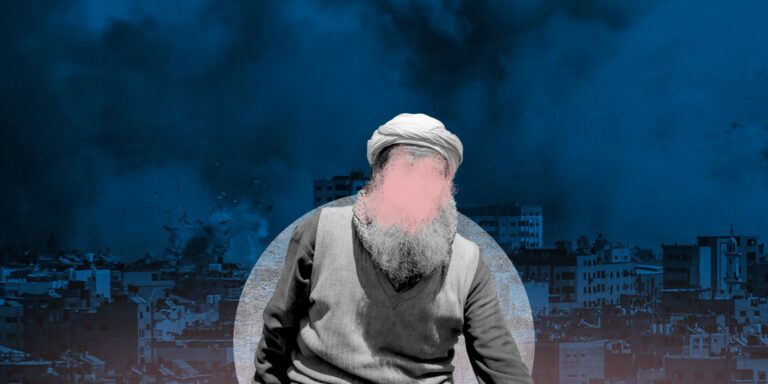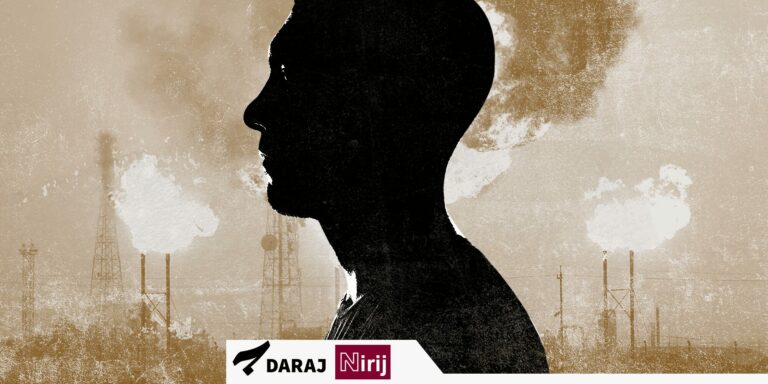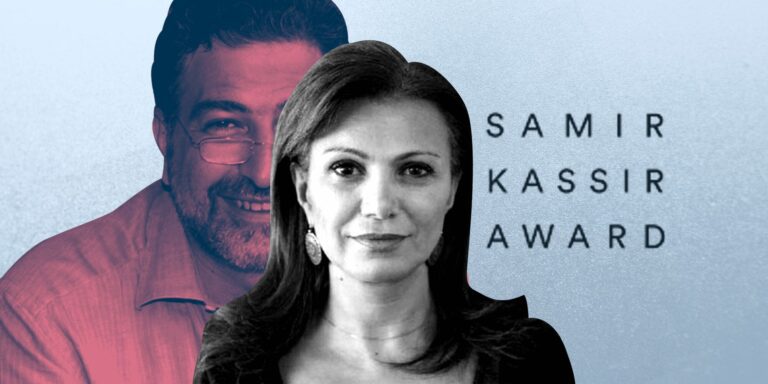“His eyes were examining me from top to bottom, he asked me to turn around. Are these the qualifications for the job? I wonder silently. He pursed his lips and asked me: ‘Are you married?’”
Moj, 19, started working in a youth cafe on the outskirts of Baghdad province this year. She says it opens its doors from ten in the morning until two at night, and the owner insisted that her shift be in the evening under the pretext of “attracting more customers,” ordering her while puffing on his shisha and rebuking her not to try to change her shift time.
Rasal lost her husband one month after their marriage, as he was killed in confrontations with ISIS. Her family, consisting of 10 members, pushed her into early marriage to relieve themselves of her responsibility, leaving her alone to search for work.
All the places where she wanted to work required a “strong” resume and a university degree to work in a makeup store, but she ended up working in a cafe for a daily wage of 24,000 Iraqi dinars ( 17 US dollars).
Rasal thought that the place only required her, as she says, to practice her profession as a waitress. She says: “I didn’t have a manual explaining what I would face: verbal, visual harassment, which then developed into physical harassment when I tried to leave the job. The owner threatened to kill me if I harmed the reputation of his place and then asked me to return, threatening me as well.”
Societal norms in Iraq, for quite some time now, have exercised their dominance solely over women, preventing them from practicing certain professions, including working in cafes and restaurants as waitresses. One of the cafe-goers told us: “Society does not want to see a girl serving juice to a guy, this is against traditions,” and he warned me while writing the report about “inciting the spread of corruption.”
Some cafe owners have exploited this social pressure to offer work to women in desperate need of any job, in order to exploit them sexually and financially. Some cafes have outwardly turned into public places, but they hide behind them worlds of slavery and sex trafficking.
Rasal says: “I had to serve shisha to the guys, then prepare it for them and sit near them. Some of them deliberately dropped something to start examining my body or even touching me. I usually try to ignore it, but one time, I couldn’t stand it, I screamed. The customers laughed while puffing on their shisha, and the manager thought this behavior would attract more customers.”
Partners in Harassment!
Under the pressure of blackmail and the threat of dismissal, some cafe owners force female employees to give their personal numbers to customers, comply with their demands and harassment, and sometimes even go home with them.
Marwa, 20, says: “If I refuse to give my number to someone, he fires me immediately. What can I do? I have no other place to work. On the contrary, if some workplaces find out that I previously worked in a youth cafe, I will only face doubts about my morals.”
There are no official figures addressing this issue, but the Iraqi Women Journalists Forum (an independent organization) managed to conduct a comprehensive survey of more than 5,000 women. The results showed that 77 percent of Iraqi women are subjected to direct harassment, while more than 90 percent of them demanded laws capable of deterring harassers.
Most notably, 78 percent of the women interviewed stated that they have experienced harassment in the workplace and that they could not leave their jobs for economic reasons.
The percentages distributed by social research on the types of harassment they were subjected to showed that 57 percent have experienced verbal harassment, while 20 percent have faced “attempts or sexual harassment at work.”
Customers ask the female worker in the cafe to sit with them and smoke shisha in a certain way, and then the men exchange obscene and sexual words in front of her, some describing their bedroom desires with relish, waiting for laughs from them. Marwa says: “We laugh; we have to laugh in the end, then go to the kitchen and cry. I tried to leave the job, but I returned. I had to take a risk with my child’s life, whose father left without providing us support.”
Marwa says the first question the cafe owner asked her was, “Are you married? We prefer divorced women, widows, those without a family, or those who live only with their mothers. We’re not in the mood for problems.”
She adds that the cafe owner orders her to get close to young men he knows are financially well-off, and she has to lure them and bargain with them. If “the deal is done,” half of the money goes to the establishment. “He is trafficking us,” she says, confirming that he employs women from other provinces, especially those he knows have no one, to exploit them. She continues: “There is no social, health, or economic security granted to many women who are forced to leave school and marry early. What can a woman do amid this neglect to support herself and her children?”
Laws Supporting Harm
The Wasit Provincial Council voted to ban girls from working without men in “coffee shops” within the province’s areas. While the local government mandated security authorities to implement the decision immediately, citing that the profession “does not have social acceptance,” female cafe workers appealed to the local government to “provide job opportunities.” However, the province affirmed that women working in cafes is unacceptable and violates the prevailing values and customs in the province.
Sanaa, who works as a waitress in a Baghdad cafe, says: “They did this in many cities, including Baghdad. In the Amiriya area, west of the capital, they closed Cafe Mazaj multiple times under the pretext of violating instructions.” She adds, “They do not do this out of concern for women from harassment, but they are able to place the blame solely on women instead of enacting laws that protect them and grant them the right to work.”
Sanaa believes that some cafe owners secretly engage in sex trafficking and that male customers are aware of it. She says: “My constant complaints were met with the same response from my employer, who said that he could not control all of them. Between his customers and me, we know who he will choose. If I refuse, someone else in desperate need of money will comply.”
Lawyer Maha Ahmed says: “There is no specific Iraqi law regarding harassment, but there are articles that impose penalties for physical and sexual assaults in workplaces under the Iraqi Penal Code No. 111 of 1969. The maximum penalty, after proving a wide range of evidence and indications, does not exceed one year in prison, which is one of the lightest penalties in the world. Additionally, articles 400-404 of the Iraqi Penal Code reduce harassment to matters of indecent acts in public spaces.”
Explosive Devices Against Cafe Women
The Bride of Basra Casino is one of six cafes and tourist casinos that were attacked with homemade explosive devices in 2016 because women worked there, resulting in the death of one person. Basra also witnessed the bombing of Coffee Time, a cafe, and a leaflet was found at the scene warning against the continued operation of these cafes, which the unknown entity described as “houses of devils,” threatening workers with murder. This led to the women resigning from their jobs.
Two years earlier, the Classico Cafeteria, located in the middle of Karrada district, east of Baghdad, was attacked with gunfire, resulting in the death of one person and injuries to others. Baghdad Province then formed the Baghdad Emergency Regiment, which, according to their statements, is responsible for closing clubs and cafes that violate public customs and traditions.
Sanaa says: “The disaster is that they do not close them because they refuse the work of minors and trafficking and exploiting them, but out of contempt for women working in cafes, to the extent that everyone sees them as deserving of death or physical exploitation.”
No Role for Local Authorities
Women’s rights activist Saja Mohammed indicates that women are subjected to blackmail by influential figures, officers, and soldiers. She adds, “One of the women we tried to help was blackmailed by an officer who frequented the cafe where she worked. She refused his advances, and he began to harass her, making the owner threaten to fire her. She had nowhere else to go, but she continued to refuse until he framed her with a malicious case that resulted in her imprisonment for eight months. She was released, and we are trying to find her a place to work.”
Local authorities do not monitor these places, the nature of interactions with female workers, or the toxic work environment. Moreover, many of those working are minors who find themselves supporting their mothers and younger sisters alone.
Saja says: “Some of these shop owners have strong relationships with security and police officers and pay them bribes in exchange for services from these girls and for keeping their jobs. Sometimes, fights occur inside the cafe and spillover outside, but the police close the cases [after receiving] a handful of money. There are also mafias that employ girls, most of whom are from outside Baghdad province and from other areas in Iraq.”
A survey conducted by the International Labour Organization in cooperation with the Iraqi Ministry of Planning and the Central Statistical Organization showed that there are about 13 million women of working age. Nevertheless, less than one million women are employed, at a rate of 10.6 percent compared to 68 percent for men. The statistics also indicated that the female unemployment rate (28.2 percent) is nearly double the male unemployment rate (14.7 percent).
Layers of Injustice
One of the waitresses was asked by a customer to have a relationship, and when she refused, he began to threaten her. She fled from work, but he followed her with a group of people to beat her and steal her phone to blackmail her.
Nada (a pseudonym), a member of the community police explains that “society contributes to destroying these women. Most of them were forced by life circumstances to leave their studies early and reluctantly enter the labor market. Many have younger sisters who fled from harassment by a brother or father, not to mention abuse or attempted murder. The number of complaints we receive is very low, not exceeding five a day. This is understandable, as no one treats them as human beings, neither inside nor outside the cafe.”
It is worth mentioning that Iraq ranked last globally in terms of women’s participation in the labor force, according to the latest report for 2024.
Iraq ranked 195th out of 195 countries, with the rate of female participation in the labor force in Iraq at only 10.7 percent, according to the report prepared by C World.






